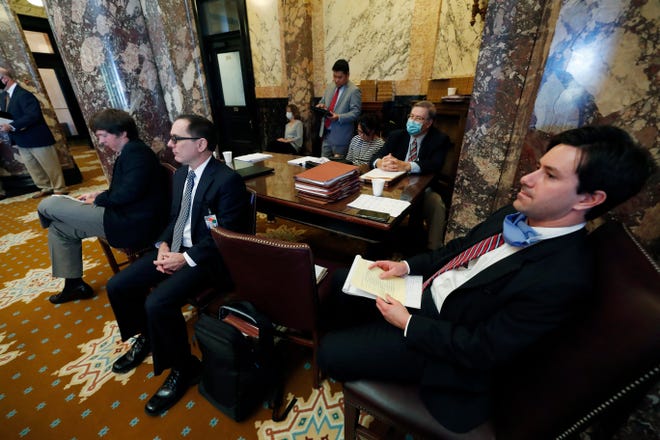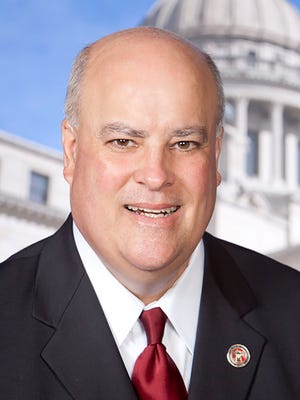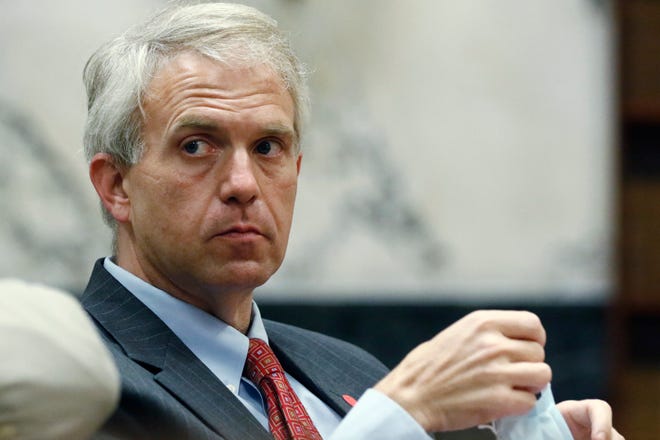6/27/20 – Clarion Ledger – One bill would help students in rural districts in the short-term. … Mississippi’s rural internet is awful. Lawmakers hope these two bills help.
The coronavirus laid bare Mississippi’s rural internet problems.
Students forced into distance learning struggled to connect, or lacked access altogether. Patients needing care for the virus or other other ailments wanted to avoid the doctor’s office — but couldn’t get telehealth services, which often require high-speed internet for a video feed.
Mississippi has long been ranked as having among the slowest internet and patchiest coverage of any state in the country.

But a pair of bills moving through the Mississippi Legislature in its final days aim to dramatically improve connectivity, both over the short- and long-term. They would tap into a $1.2 billion pot of money the federal government provided Mississippi for its COVID-19 response.
The short-term fix, House Bill 1788, aims to quickly set up internet solutions — ideally by the fall semester — for many students without access to internet at home. It would use $50 million of the CARES Act funds, which would be funneled toward school districts with large numbers of unserved students. The Mississippi Department of Education would run the program.
“It’s first come, first serve,” said Rep. Scott Bounds, R-Philadelphia, the bill’s author. “If a district has unserved students, this will allow them to go to MDE to make their case — ‘We have this number of unserved students.’
“MDE will verify that,” Bounds added. “That district will then be able to go out and negotiate a contract on their own, with a broadband provider in their area.”
In some cases, the broadband provider contract could involve distributing more WiFi hotspots, or fixed-wireless transmitters. The key is “rapid deployment” of some level of internet access to as many students as possible, Bounds said.

The bill easily passed the House on Friday and now goes to the Senate.
Earlier this week, a possible longer-term fix to Missisippi’s internet woes, Senate Bill Bill 3046, passed the Senate and now awaits House approval.
It would create a grant program overseen by the Public Service Commission to incentivize companies to expand high-speed broadband into rural areas. Without sure profits, the big internet companies haven’t entered many of those less-populated areas of the state.
The commission would offer matching funds to kick-start rural internet projects based on how well companies score on a range of factors — such as readiness to build, internet speed they could offer, affordability to the consumer and others. The maximum grant a company could get, according to the bill, is $10 million.
The commission would audit the companies to ensure they are providing the services they pitched.
“It awards grants to entities that are willing to put private skin in the game, private match dollars,” Public Service Commissioner Brandon Presley told the Clarion Ledger.

But Presley said a second portion of the bill is just as important. It would allow companies to tap into “dark fiber” lines being laid around the state by some of the biggest electric utilities, such as Entergy and Mississippi Power. Those fiber lines help electric companies operate the grid. But they could also help other companies offer as many as 244,000 rural Mississippians high-speed internet.
From last year’s session:Rural internet bill passes Miss. Legislature, but don’t expect blazing speeds just yet
“It is an all-hands-on-deck infrastructure approach,” Presley said. “It’s saying, ‘We’re not just going to pass your house for the sole purpose of operating the electric grid.’ “(It’s saying), ‘If there’s excess capacity, we can lease that off.'”
The bill doesn’t allow Entergy or Mississippi Power to get into the internet game, though, Presley said. It would take another company leasing capacity in the line to use for internet. Such deals would result in lower electricity rates, he said.
“There are people in Mississippi with a fiber-optic line running by their house today that’s doing them absolutely zero good, because nobody can use it,” Presley said. “We’re saying, allow that line to be used. There’s capacity there. And let the money go back and lower power bills.”
Contact Luke Ramseth at 601-961-7050 or lramseth@gannett.com. Follow @lramseth on Twitter.
